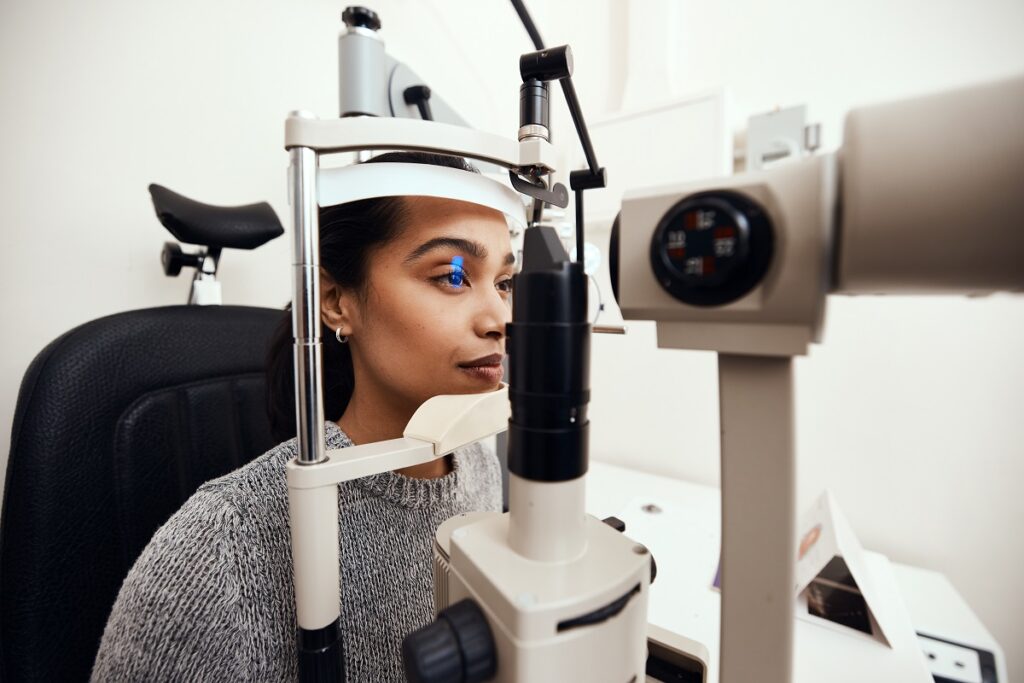Montgomery Eye Doctor: Personalized Eye Care and Vision Services
Montgomery Eye Doctor: Personalized Eye Care and Vision Services
Blog Article
The Value of Routine Eye Examinations: Insights From a Seasoned Ophthalmologist
Routine eye tests serve as a vital part of health care that expands beyond mere vision adjustment. A seasoned eye medical professional can supply understandings right into exactly how these assessments not only identify typical eye problems however additionally disclose underlying health concerns that might otherwise go undetected.
Advantages of Routine Eye Tests
Although many people might forget the significance of normal eye exams, these analyses play a critical role in maintaining overall health and wellness and health. Regular eye examinations offer not only to assess vision but additionally to detect early indicators of systemic health problems, consisting of diabetes and high blood pressure. By recognizing these problems at their beginning, patients can get timely treatments, dramatically boosting long-lasting outcomes.
Additionally, eye tests can assist in keeping an eye on existing wellness issues, making certain that any kind of changes in vision or eye wellness are promptly addressed (optometrist). The assessments permit personalized suggestions pertaining to eyeglasses, way of life changes, and safety procedures against prospective eye stress or damages
Beyond physical health, the advantages of normal eye exams extend to boosting lifestyle. Enhanced vision promotes far better performance in everyday tasks, from checking out to driving, consequently adding to better self-reliance and safety and security. Eventually, prioritizing eye examinations promotes an aggressive strategy to health management, empowering individuals to organize their health. Regular check-ups are a necessary component of a detailed health care approach, making certain that both vision and total health are preserved throughout life.
Common Eye Issues Detected
Routine eye tests contribute in identifying a variety of common eye conditions that can considerably impact vision and overall wellness. Among one of the most prevalent conditions identified during these evaluations are refractive mistakes, including nearsightedness (nearsightedness), hyperopia (farsightedness), and astigmatism. These problems typically manifest as blurred vision and can be easily corrected with prescription glasses or call lenses.
An additional usual concern is glaucoma, a group of eye diseases that damage the optic nerve, usually linked to increased intraocular stress. Early discovery is critical as it can protect against irreparable vision loss.
Age-related macular deterioration (AMD) is one more substantial problem that impacts main vision, specifically in people over 50. Lastly, diabetic person retinopathy, an issue of diabetes mellitus, can result in extreme vision impairment if not checked routinely. With thorough eye exams, these conditions can be determined early, enabling timely management and therapy to maintain vision and enhance high quality of life.
Importance of Early Detection
Early discovery of eye problems plays a crucial function in maintaining vision and protecting against significant wellness difficulties. Numerous eye illness, such as glaucoma, diabetic retinopathy, and age-related macular degeneration, can advance calmly without obvious symptoms in their onset. By the time symptoms materialize, irreversible damage may have happened, resulting in irreversible vision loss.
Routine eye tests help with early diagnosis, permitting timely intervention and therapy. As an example, dealing with elevated intraocular pressure can stop the start of glaucoma, while handling blood glucose levels can substantially decrease the danger of diabetic retinopathy. Furthermore, problems like cataracts can be efficiently taken care of with medical intervention when identified early.

Exactly How Typically Should You Visit?
Figuring out the regularity of eye tests is important for preserving ideal eye health and wellness and vision. The general referral for grownups is to have a comprehensive eye examination every one to two years, depending on individual risk aspects and age.
People with particular risk factors, such as a family background of eye condition, diabetes mellitus, or existing vision troubles, might need more constant analyses. Kids ought to have their first eye test at six months of age, adhered to by extra exams at age 3 and before getting in institution. Regular check-ups throughout childhood years are essential as vision can alter rapidly throughout my review here developmental years.
Inevitably, the frequency of gos to need to be tailored per individual's scenarios, consisting of way of life, job-related risks, and any type of pre-existing eye problems. Consulting with an eye care expert can offer tailored suggestions, making sure that your eye health is regularly checked and preserved.
Tips for Your Eye Exam
Preparing for your eye test can boost the performance of the go to and guarantee a complete analysis of your eye wellness. To optimize your time with the eye physician, it is vital to gather appropriate details before your visit. Start by compiling a checklist of any kind of medications you are presently taking, consisting of non-prescription drugs and supplements, as these can impact eye health and wellness.
Furthermore, record any type of signs and symptoms you have experienced, such as obscured vision, pain, or migraines. This info will certainly help your optometrist in identifying potential concerns. If you put on glasses or call lenses, bring them along, also if you don't wear them consistently. This will certainly assist the physician redirected here examine any type of modifications in your vision.
It is additionally beneficial to have a household background of eye problems at hand, as genetic factors can contribute to your eye health. Finally, take into consideration scheduling your exam for a time when you are much less rushed, permitting you to ask questions and review your worries thoroughly. By preparing adequately, you make sure that your eye test is effective and that your eye medical professional has all the necessary info to give the best treatment feasible.

Conclusion
Normal eye examinations play a vital function in maintaining both vision and total health and wellness. They promote the early discovery of different eye conditions and systemic problems, allowing for prompt treatment. The recommendations for frequency highlight the importance of proactive care. Carrying out basic preparatory suggestions can boost the exam experience. Ultimately, focusing on extensive eye examinations contributes dramatically to the conservation of vision and the renovation of quality of life, underscoring the necessity of routine eye treatment in preventive medical care approaches.
Regular eye exams are crucial in discovering a variety of usual eye conditions that can significantly impact vision and general health and wellness.Figuring out the frequency of eye tests is necessary for keeping optimum eye health and wellness and vision.Preparing for your eye examination can improve the effectiveness of the browse through and ensure a detailed examination of your eye health (optometrist). By preparing appropriately, you make certain that your eye test is efficient and that your eye physician has all the essential information to supply the ideal care possible
Inevitably, focusing on comprehensive eye assessments adds dramatically to the conservation of More hints vision and the enhancement of top quality of life, underlining the need of routine eye treatment in preventive health care approaches.
Report this page